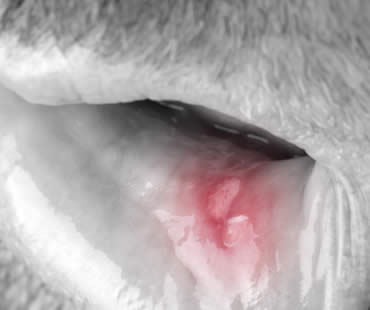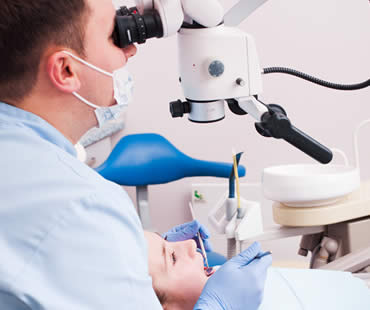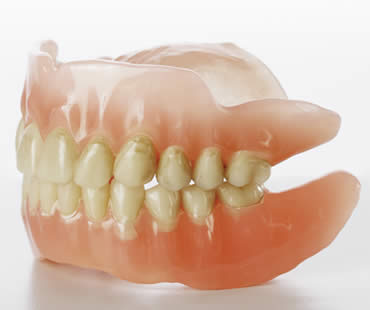
by Dr. Adkins | Apr 12, 2019 | Blog, Dental Topics 2, Root Canal Treatment
Pain, sensitivity, and trouble eating or sleeping are only a few of the uncomfortable symptoms of a damaged tooth. Sometimes the inside portion of a tooth, or its pulp, becomes so damaged that action must be taken. It could come in the form of extracting the tooth or it might be able to be saved through root canal treatment.
Virtually every dentist recommends root canal therapy over tooth extraction. It’s almost always better to save your natural tooth. Otherwise, you’ll end up with a hole in your smile and the problems that accompany it.
A tooth can be damaged for a variety of reasons such as severe decay, trauma, or deep cavities. The damaged pulp contains nerves, which is one reason that many patients experience severe pain. Although dental fillings can remedy some cavities or decay, when the situation advances to the extent of harming the tooth pulp, fillings are not enough. Root canal treatment is usually the best way to repair the tooth without having to pull it.
A root canal procedure involves drilling into the tooth so that the pulp can be completely removed and the canal thoroughly cleaned. Then the area is filled with special material and sealed to prevent future damage. Often, a dental crown is placed on top of the restored tooth to provide added protection. This process alleviates any symptoms and give you back your fully functional, natural tooth.
If you were to opt for tooth extraction instead of root canal treatment, you’d be choosing a more invasive approach. The procedure can be intrusive, time consuming and costly. Recovery from tooth extraction can be uncomfortable and take longer than root canal therapy. Careful oral hygiene is necessary after extraction to avoid infection or complications. You’ll also be left with an unappealing hole in your smile that can make eating and speaking more difficult, and your other teeth will likely start moving into that empty space.
To determine the best treatment for you, consult a reputable dentist. You’ll learn about the options and how root canal therapy may be the best choice in restoring your oral health and your smile.
We treat patients from McDonough and the surrounding area

by Dr. Adkins | Apr 5, 2019 | Blog, Dental Information, Dental Topics 2
The word cancer strikes fear and dismay in most people, and it’s no different when the diagnosis is oral cancer. Nearly 37,000 Americans are diagnosed with this disease each year and about 8,000 succumb to it. You should know the risk factors and symptoms so that you can either avoid it completely, or catch it early enough that you’ll have the best chance of recovery.
Who is at risk?
Oral cancer is not contagious, but there are some activities that put you at higher risk for the disease. Both smoked and smokeless tobacco are linked to oral cancer, and the more you use tobacco the greater your risk becomes. Excessive alcohol consumption also increases your risk, and paired with tobacco use your risk is even higher. Sun exposure heightens your chances of developing cancer of the lip.
What are the symptoms?
Oral cancer patients may experience any of these signs of the disease:
- A sore in the mouth or throat that bleeds often and doesn’t heal within two weeks
- A thick area or lump in the cheek
- Patches in your mouth or on your lips that are red, white, or a mixture of the two
- Pain or difficulty swallowing
- Difficulty wearing your dentures
- A sore throat
- Tongue or mouth numbness
- Difficulty chewing, or moving your jaw or tongue
- Earache
What should I do if I have symptoms?
If you notice any of these signs, visit your dentist right away to get screened for oral cancer. When diagnosed early, there is an 80 percent survival rate. Unfortunately many patients wait too long to see their dentist, and late-stage diagnosis is the reason for most oral cancer deaths.
Our dental office is located in McDonough

by Dr. Adkins | Mar 22, 2019 | Blog, Dental Topics 2, Kids Dentistry
Your teeth and gums are physical assets that you want to keep healthy your whole life, and the best way to do that is to take care of them. Proper dental care needs to begin at a young age so that good habits are established for life. It is a parent’s role to teach children proper hygiene, and to ensure they get professional treatment. Here are some ways that you can help your child learn good dental habits.
Supervise brushing:
Parents should watch children brush their teeth, especially for ages seven and under, to ensure the appropriate amount of toothpaste is used and that none is swallowed. Have your child brush for about two minutes, and make sure all areas of the teeth and gums are cleaned. Provide tips and help as needed.
Establish good eating habits:
Teach your child that diet impacts oral health. Some foods worsen plaque buildup and introduce damaging acid into the mouth, leading to increased tooth decay and higher risk for cavities and gum disease. Certain foods and drinks are also known to stain teeth, or cause bad breath.
Promote water consumption:
Drinking water not only is good for your overall health, it’s also helpful to your mouth. Encourage your child to drink water after eating, especially if it’s not possible to brush teeth right away. Also, fluoridated water is proven to help fight cavities.
Visit the dentist:
Begin taking your child to the dentist around age one, so that the child gets good dental care and learns that dental visits aren’t scary. Have a positive attitude about checkups, and consider taking your child to a pediatric dentist who specializes in children’s oral health.
Be a role model:
As the saying goes, practice what you preach. Set a good example of brushing at least twice daily, flossing every day, limiting your intake of staining foods and drinks, and visiting your dentist regularly.
If you need a dentist in McDonough contact us today

by Dr. Adkins | Mar 15, 2019 | Blog, Dental Topics 2, Oral Surgery
Your family, general, or pediatric dentist or orthodontist may refer you to an oral and maxillofacial surgeon for some dental treatments that require oral surgery. An oral surgeon is a specialist who has graduated from an accredited dental school and also completed additional education and residency related to surgical procedures needed to treat various oral diseases and conditions. An oral surgeon is trained in treating the following conditions:
- Removal of diseased or impacted teeth
- Placement of dental implants
- Treatment of facial trauma involving gums, jaws, nasal cavities, cheekbones, eye sockets, and forehead
- Evaluation of pathologic conditions such as cysts and tumors of the mouth and face or acute infections of the oral cavity, salivary glands, neck, and jaws
- Treatment of facial pain including those caused by temporomandibular (TMJ) problems
- Cosmetic or reconstructive surgery to correct jaw, facial bone, and facial soft tissue problems
- Corrective jaw surgery
- Cleft lip and cleft palate repair
- Surgical treatment for sleep apnea
There are many different techniques that oral surgeons use to accomplish your treatment goals. The choice of techniques may vary between surgeons and should be discussed between you and your surgeon prior to the procedure.
Many oral surgery procedures can be completed in an outpatient setting. Often you are only in the office for a few hours and can return to your regular routine in a matter of days. A good oral surgeon will be able to perform these procedures with little chance of complications, and will be able to provide you with the information you need to understand the recovery process. Your oral surgeon will often collaborate with other specialists, such as an orthodontist or cosmetic dentist, to achieve your ultimate treatment goals.
Our dental office is located in McDonough

by Dr. Adkins | Mar 1, 2019 | Blog, Dental Information, Dental Topics 2
Pregnancy brings many kinds of excitement and joy to a mother’s life, but gum problems aren’t one of them. Pregnancy gingivitis not only causes gum trouble, it can also lead to higher risks for preterm labor and problems with the newborn baby. If you are pregnant and notice swelling or inflammation of your gums, you might have pregnancy gingivitis. It results from plaque buildup that irritates your gums, and can harbor bacteria that gets into your body. The bacteria can travel to your uterus and affect your pregnancy and unborn child. How can you avoid pregnancy gingivitis?
Oral hygiene
Brush and floss your teeth properly. Try to brush after all meals and snacks, especially those high in sugars or starches. See your dentist for frequent cleanings, aiming for two to three times during your pregnancy. This will remove more plaque from your teeth that you can at home, serving to lower your risk for plaque buildup.
Education
Consult your dentist before, during, and after your pregnancy. You will learn how to best care for your mouth, and what to watch for in case a problem does arise.
Nutrition
Maintaining a healthy diet during pregnancy will not only benefit your overall health and that of the baby, but will also limit your sugar intake which promotes plaque formation.
Dental care
Try to have dental procedures performed before you become pregnant. Some emergency procedures are safe during pregnancy, but it is best to have treatment done before pregnancy.
Bacteria control
Avoid sharing food and utensils so that you don’t transfer bacteria from person to person. Your goal is to limit the amount of bacteria in your mouth as much as possible.
Xylitol gum
Chewing sugarless gum promotes saliva, which help equalize the acids in your mouth and fight plaque buildup. The ingredient xylitol has been shown to help prevent bacteria from being able to stick on your teeth, therefore fighting tooth decay.
If you need a dentist in McDonough contact us today

by Dr. Adkins | Feb 22, 2019 | Blog, Dental Topics 2, Dentures
In the past, replacing lost teeth meant getting dentures or bridges. Even though these offered the best way at the time to restore your mouth’s appearance and function, technology has improved through the development of dental implants. The main drawbacks of bridges and dentures is that they do not feel or look just like real teeth, and it is difficult to chew tough foods. The advantage of implants is that they look and perform so well that you can’t even tell they are not your natural teeth.
Made from titanium, dental implants are screws that are surgically placed directly into your jawbone. They are light and malleable, but durable and strong. The titanium screws are implanted into your jawbone and given time to heal. Once healing is complete, one or multiple crowns are placed on top of the implant to recreate your missing teeth. One implant can hold more than one screw, so it is possible to attach as many crowns as needed to replace your missing teeth.
Dental implants look so much like real teeth that others won’t even be able to tell that you have any artificial teeth. You might even forget about it yourself, as they feel real as well. Since the implants are securely placed in your jaw, they are as strong as real teeth and you are able to chew and bite anything that you would normally eat. Another great thing about implants is that they don’t impact any of your adjacent healthy teeth. While bridges and dentures can sometimes damage neighboring teeth because those teeth are necessary for support, implants avoid this problem. You are left with a fully restored and comfortable smile.
We treat patients from McDonough and the surrounding area








 (470) 665-5292
(470) 665-5292  E-Mail Us
E-Mail Us 
